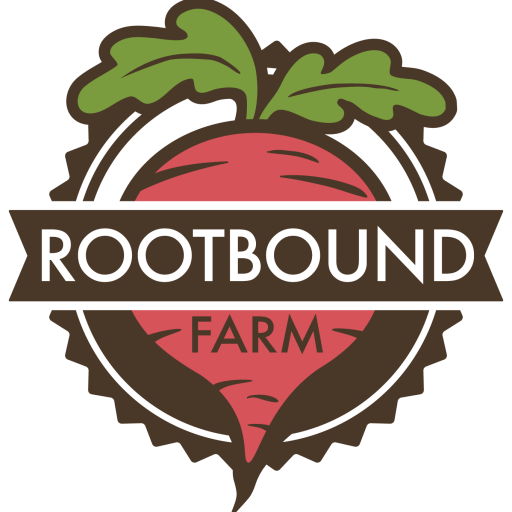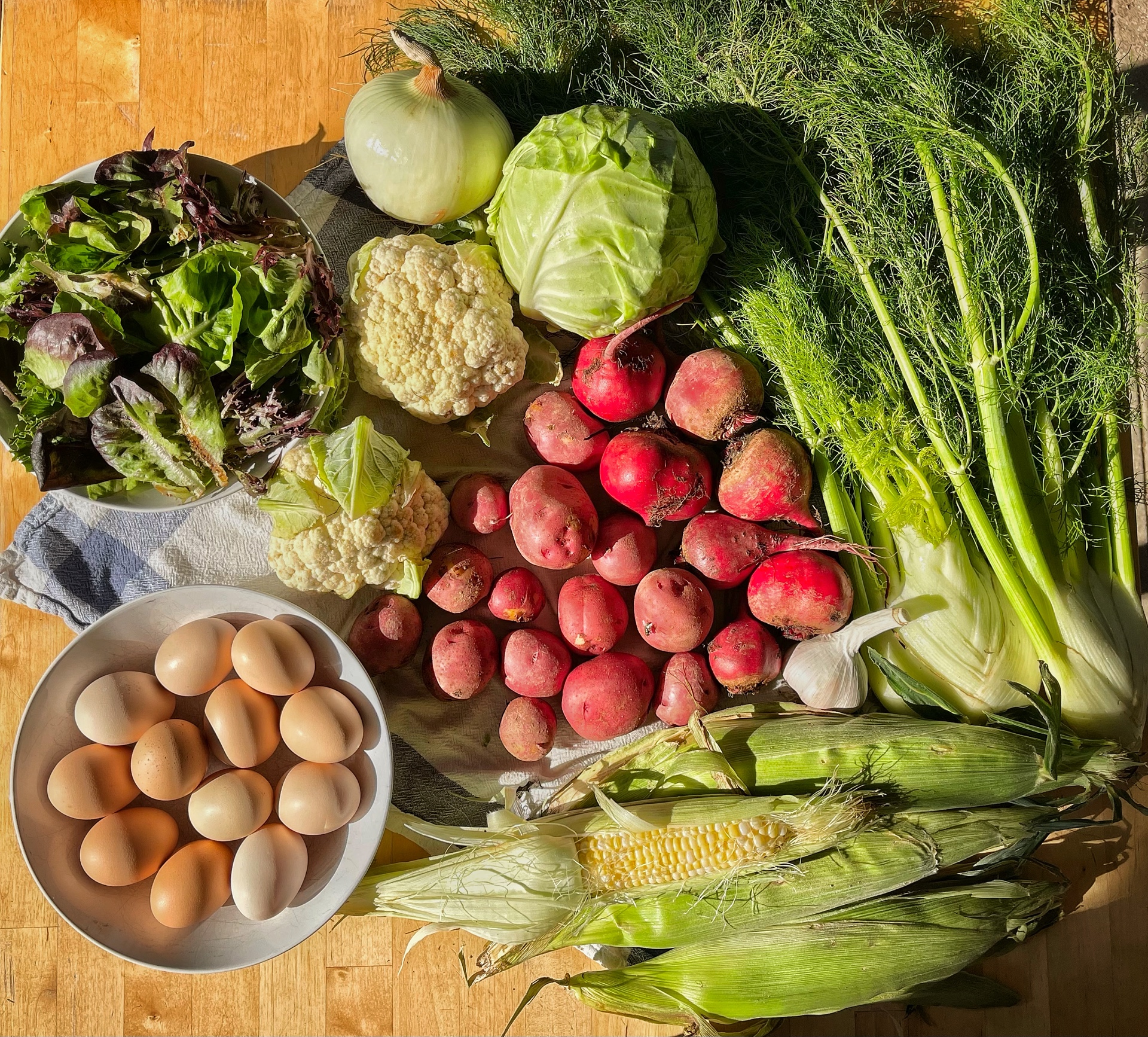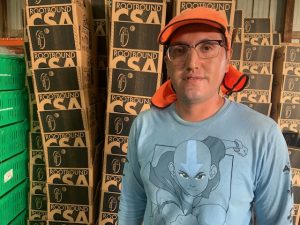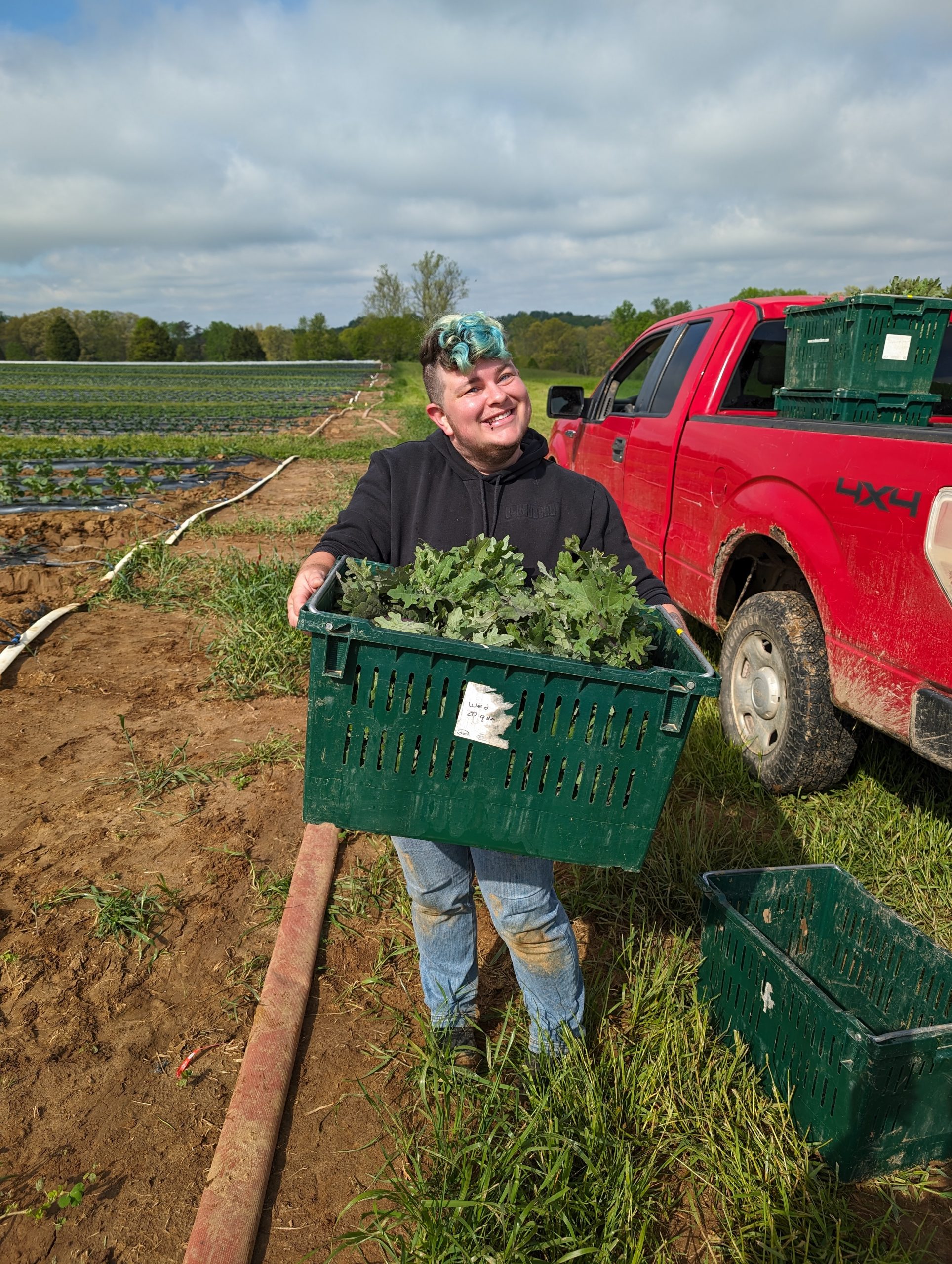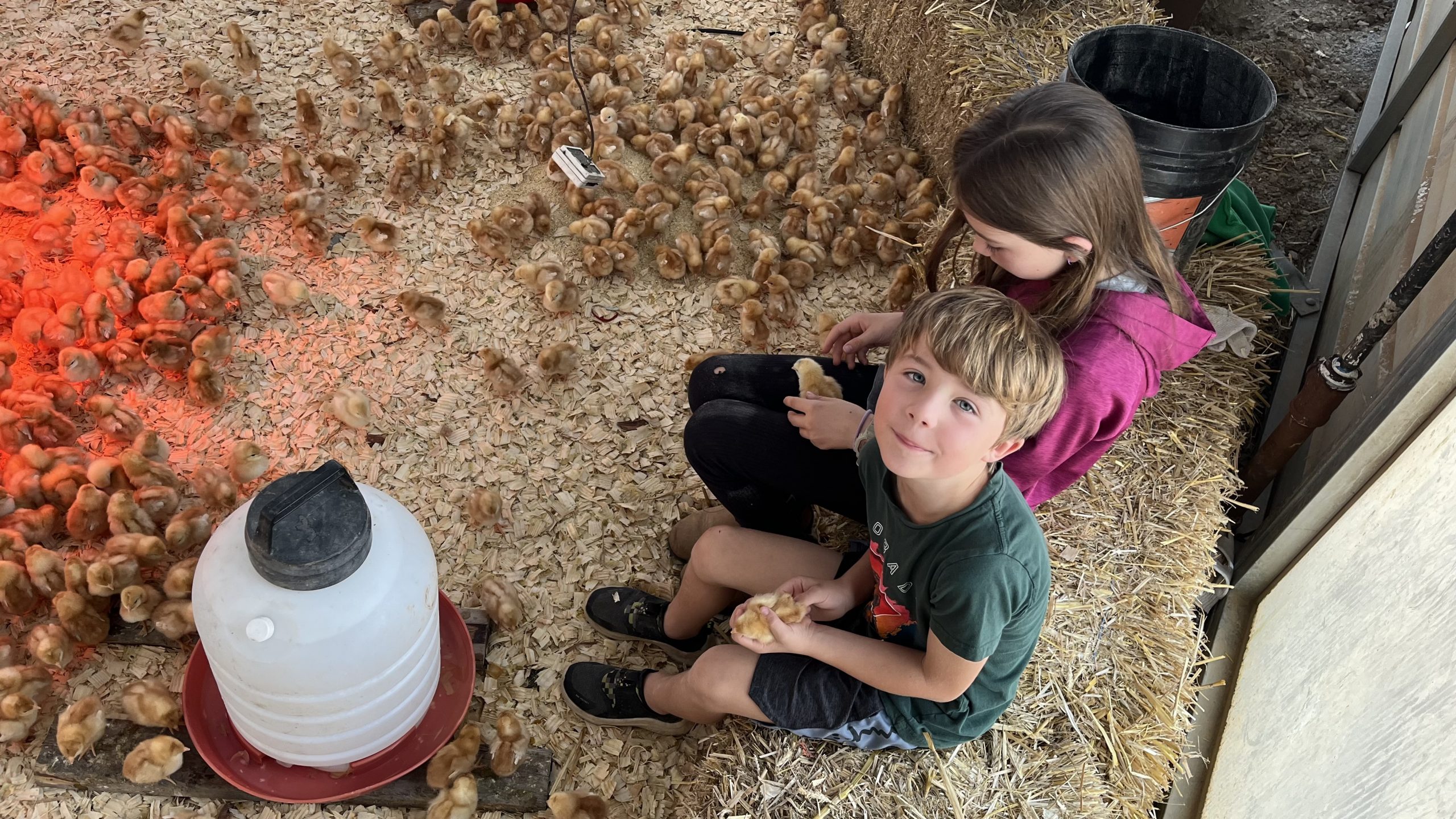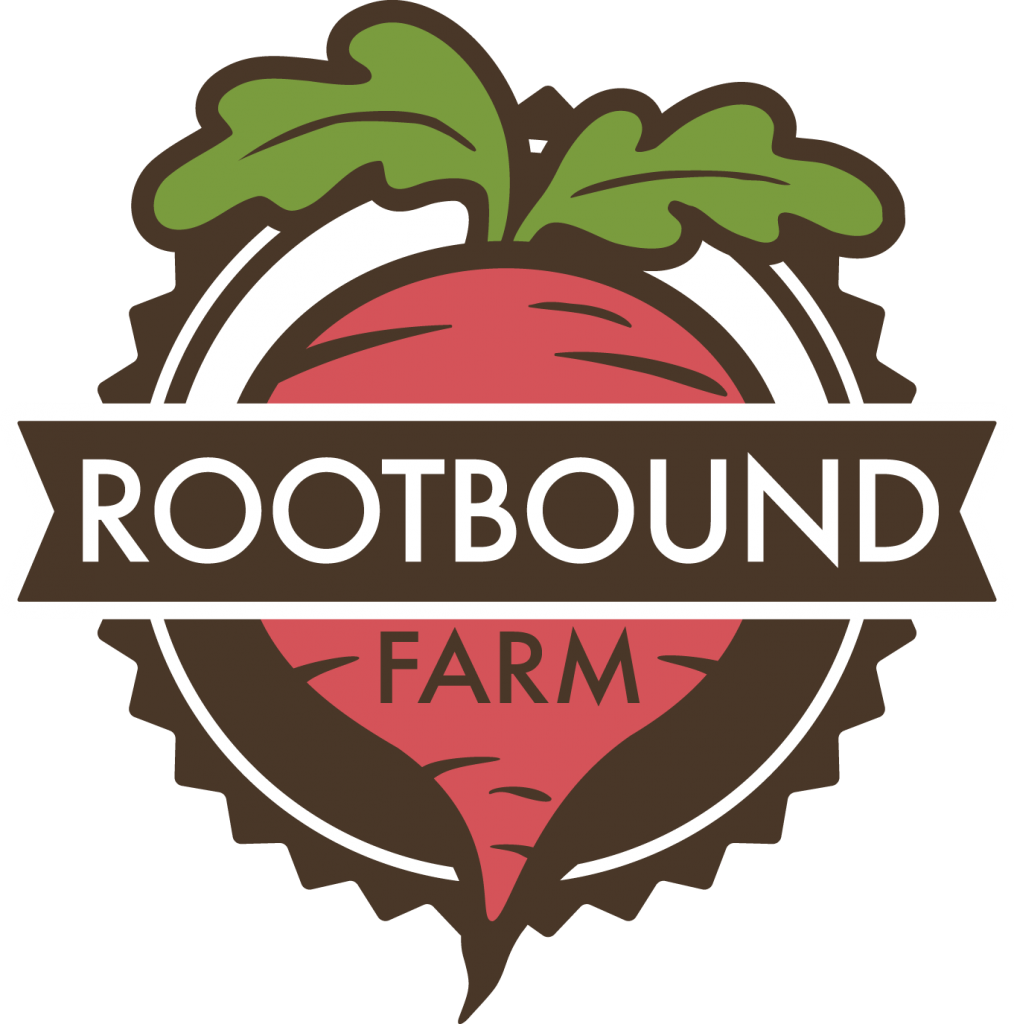This week we wish a happy 30th birthday to Oscar! This is Oscar’s third year working at Rootbound Farm. His brother, Pedro, also works here at Rootbound Farm. Oscar is from Nayarit, Mexico, and spends about 8 months every year working here in Kentucky and then travels back home to spend the 4 winter months with his family in Mexico. Oscar and his wife, Azucena, have two children; Emily is 4 and Alexis is 9. Oscar is a family man and loves to share about his children and he sacrifices a lot of time with them to spend time in Kentucky working and providing for them. During the winter months Oscar works in tourism in the nearby tourist town of Puerto Vallarta. He has lived near the coast his whole life and misses fresh seafood. Oscar’s favorite job on the farm is harvesting but he has done a little bit of everything over the years because he has a great attention to detail. He was our lead animal staff for a time period and also takes leadership packing CSA’s and working in the pack shed. Thank you Oscar for your work here at Rootbound Farm!
This is probably the best crop of sweet corn we’ve ever grown. We’ve babied it with electric fencing, noise canons, lots of hand weeding and care AND organic sweet corn means that we use no herbicides and pesticides and it’s inevitable that the corn ear worm makes it into the tip of many of the ears. You will likely need to slice off the tip or some portion of the ear and then enjoy sweet and flavorful local corn. Corn earworm is considered by some to be the most costly crop pest in North America and because there are big bucks in corn, there is a full cocktail of herbicides and pesticides designed to control the corn ear worm. You may have heard of some of these products such as the “glyphosate” pesticides (the active ingredient in Roundup) whose broad and widespread use has ongoing consequences for the health of wildlife, the land and water, and of course people who end up eating that corn.
As an organic farm we never use synthetic chemicals or pesticides on our food and we have gotten better and more intentional at trying to control pests and disease with organic methods. In addition to trying to stave off the big critters that want to eat the corn when it’s ripe (raccoons, birds, deer), we also try to control the little critters – like the corn ear worm – that want to crawl in that ear and take their fill.
When it come to insect control in organic farming we rely on a multitude of approaches to try and provide you with the best looking product possible. For some crops we use an actual physical barrier called floating row cover that blankets the crop and prevents pest entry. For crops like sweet corn their height makes physical exclusion of the pest impossible. Like with all our organic crops our first line of defense is doing our best to maintain great soil health. Healthy living soils provide crops with the growing environment they need to activate their own plant defenses. Every winter we read up on new field trials or research on sweet corn varieties that are performing well under organic conditions. Among other things this means good germination, since our seeds are not coated with toxic fungicides, and a really tight husk wrap, which is less attractive to ear worms. Finally we use organic approved sprays that target the two pests were concerned about, the corn earworm (the worm that is usually in the top) and the European corn borer (the worm usually found on the side of the corn. The sprays we use are made of naturally occurring bacteria that dissipate quickly in the environment and don’t harm beneficial insects such as lacewings and parasitic wasps that are also in the field helping us out.
Recipes Ideas for the Week:
- Roasted Cauliflower with Onions and Fennel
- Caramelized Fennel Salad with Goat Cheese
- Creamy Sriracha Coleslaw
- Whole Roasted Chicken with Potatoes
- Stuffed Cabbage Rolls (try these with ground lamb and our marinara)
- Refreshing Fennel Tea: remove the fronds from the fennel, boil them in water for at least 10 minutes, drain out the fennel fronds and add honey if desired. Serve chilled or hot.
